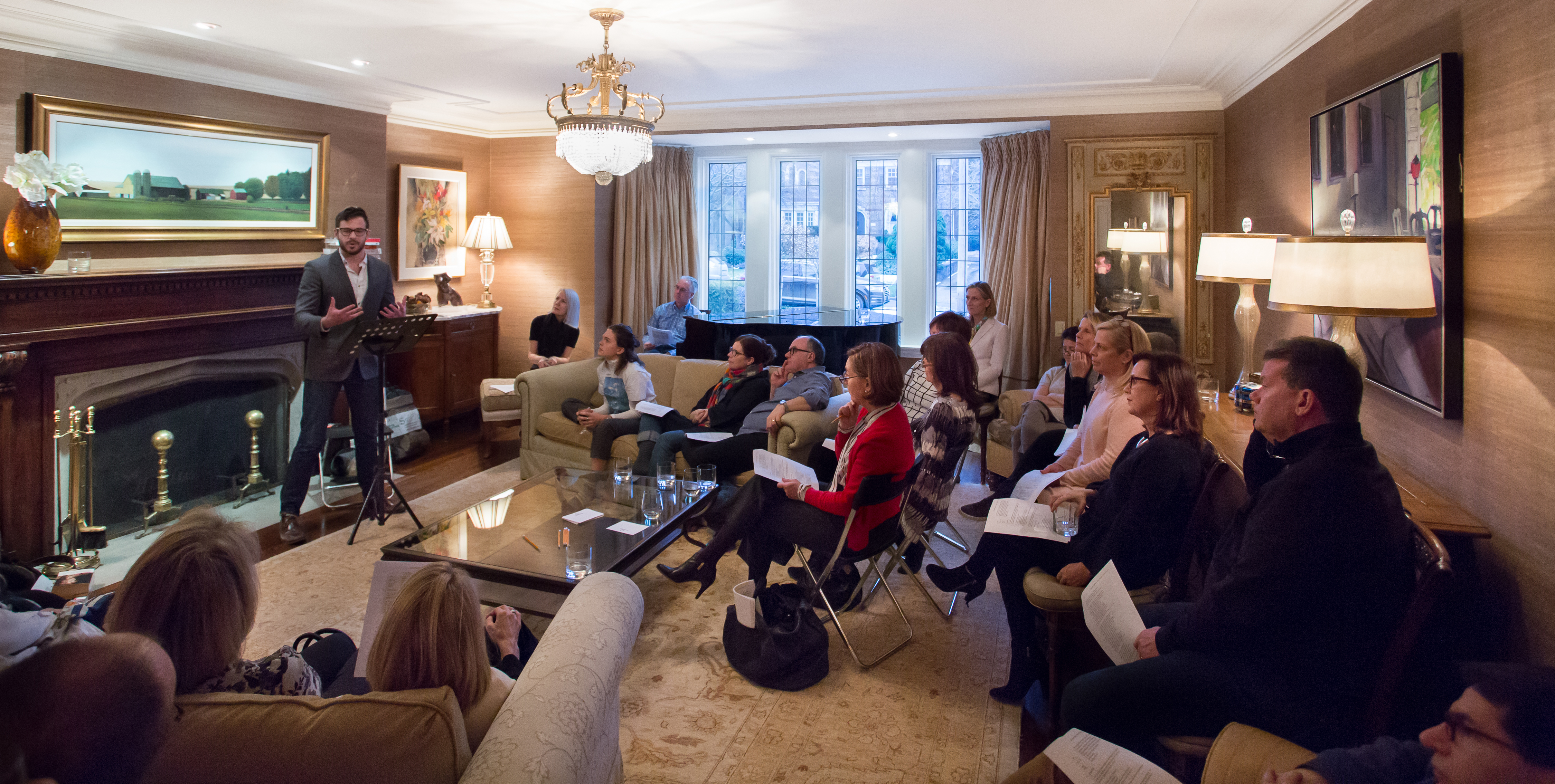“I want a hero.”
On Sunday January 21st, 2018 we held our first SmallTalks event. Led by Chancellor Jackman Junior Fellow Chris Kelleher, the topic of conversation was entitled “The Cosmopolitics of Seduction: An Examination of Lord Byron’s Don Juan & Contemporary Politics.” The poem’s opening line is the plaintive and practical wish, “I want a hero.”
The seminar started with a discussion of the salient characteristics and timing of Romanticism – what was happening in the world at large and Europe in particular from 1789 (the French Revolution) and through the tumultuous final years of “Mad” King George III of Great Britain, ending in 1820. Romanticism, Chris explained, was a cultural expression of disappointment in the aftermath of revolution and republicanism. The Romantics decried the century before them by celebrating imagination not reason, admiring subjective opinion over objective rationale, elevating the individual over the collective, and placing art above religion. They sought to glorify the mundane as sublime with portrayals of ordinary lives as exalted.
In his epic poem, Byron turns the tables on Don Juan – the mythical seducer is seduced by the compelling and powerful rhetoric of women in the tale. The women are allegorical representations of various political ideologies that were playing havoc with social confidence at the time. The satirical rendering is both dark and uplifting. In the text, despotic Princes and Rulers rob the treasury and starve their subjects, while armies physically slaughter communities, and religious doctrine emotionally disables the population – but from these graves “a glorious Phantom may/Burst, to illumine our tempestuous day.”
During the time Byron is composing Don Juan much of the world’s political and financial power seemed to be the plaything of corrupt, greedy and (frankly) stupid men – not unlike our world today. There is a note of optimism in the idea that saner heads have prevailed before and so, will again.
Following the seminar the Q&A was lively. How did things work out? Were artists really instrumental in a solution or were their efforts dismissed? What can we learn from the public response? Have we not learned anything? How do we move forward? Which brought to mind the quote:
The only thing necessary for the triumph of evil is that good people do nothing.
— Linda Glover


